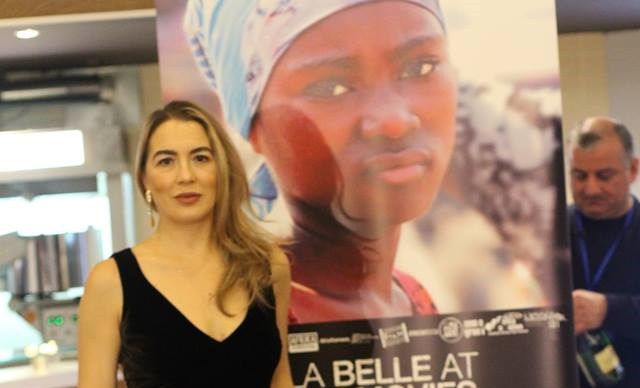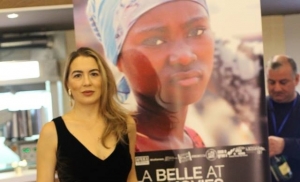INTERVIEW: Cecilia Zoppelletto, Director, Featured in GIFT 2016
International Art festival GIFT is ongoing. On November 7, at Amirani cinema, it introduced the documentary ‘La Belle at the Movies’ by Italian film director, journalist and writer, Cecilia Zoppelletto, a debutant who has already gained recognition at a number of film festivals and large-scale international events.
“'La Belle at the Movies' and movies like it can be thought of as a phenomena for modern documentary films,” said Keti Dolidze, founder of the festival. “While the film industry today chooses to gain success through technological innovations, the meaning of documentaries, their worth and part in developing a country and the world as a whole, becomes even greater,” she said.
Cecilia Zoppelletto’s concern is that, in spite of the Congo’s independence, there is a problem with identity. The movie is based on sincere interviews with interesting respondents. It is a retrospective of what was during the apartheid and what is now. Seemingly, independence does not bring happiness. Physical and spiritual famine reigns in the Congo, yet despite their extreme poverty, there are some who play several instruments, sing, and remember Congolese cinema of old. Their dreams are immortal.
“When I arrived in Kinshasa, Congo, I saw a lot of billboard advertisements, but none of them were cinema posters,” Zoppelletto said following the Tbilisi screening. “I asked about it and they answered: we have no cinemas. This became my main inspiration.”
GEORGIA TODAY spoke to Cecilia Zoppelletto about her visit to Georgia and her film.
This is your first visit. What are your impressions so far?
I’ve just started out on my journey here. I’m very excited as I have so much to discover. I feel quite ignorant because there is a very rich culture and so much to see.
Why did you decide to shoot a documentary in the Congo?
Because I was there on holiday. I have a background in TV journalism and now I work as a producer. The soul of a journalist pushes one to find out why things are how they are. In my film I wanted to bring out another side of the Congo. The respondents thought I was going to focus on the bad side of their stories, because a lot of journalists do this. I took pains to convince them that I was focusing on the good sides. I wanted to talk about culture and people’s dreams. Everybody thinks of the Congo as a place of rape, war, famine, poverty…. Nobody remembers that there is a nation who has a culture and a beautiful way of expressing it.
Did you ever feel in danger there?
In Kinshasa it was quite safe. I had total respect for the people there and often tried to start a conversation with them out of the usual African context.
Those dialogues proved a success for Cecilia Zoppelletto in the film festival circuit. Among the films’ interviewees, there is one person who says that a large part of the world thinks the Congolese still have only oral education. But he underlines the traditions of Congo’s cinema, their past stars, and even recalls that they used to have a film called ‘Life is Beautiful.’
The director has a very human approach in recognizing and respecting her Congolese interviewees, clearly demonstrating that poverty is no barrier to a thirst for a valuable life.
Maka Lomadze











